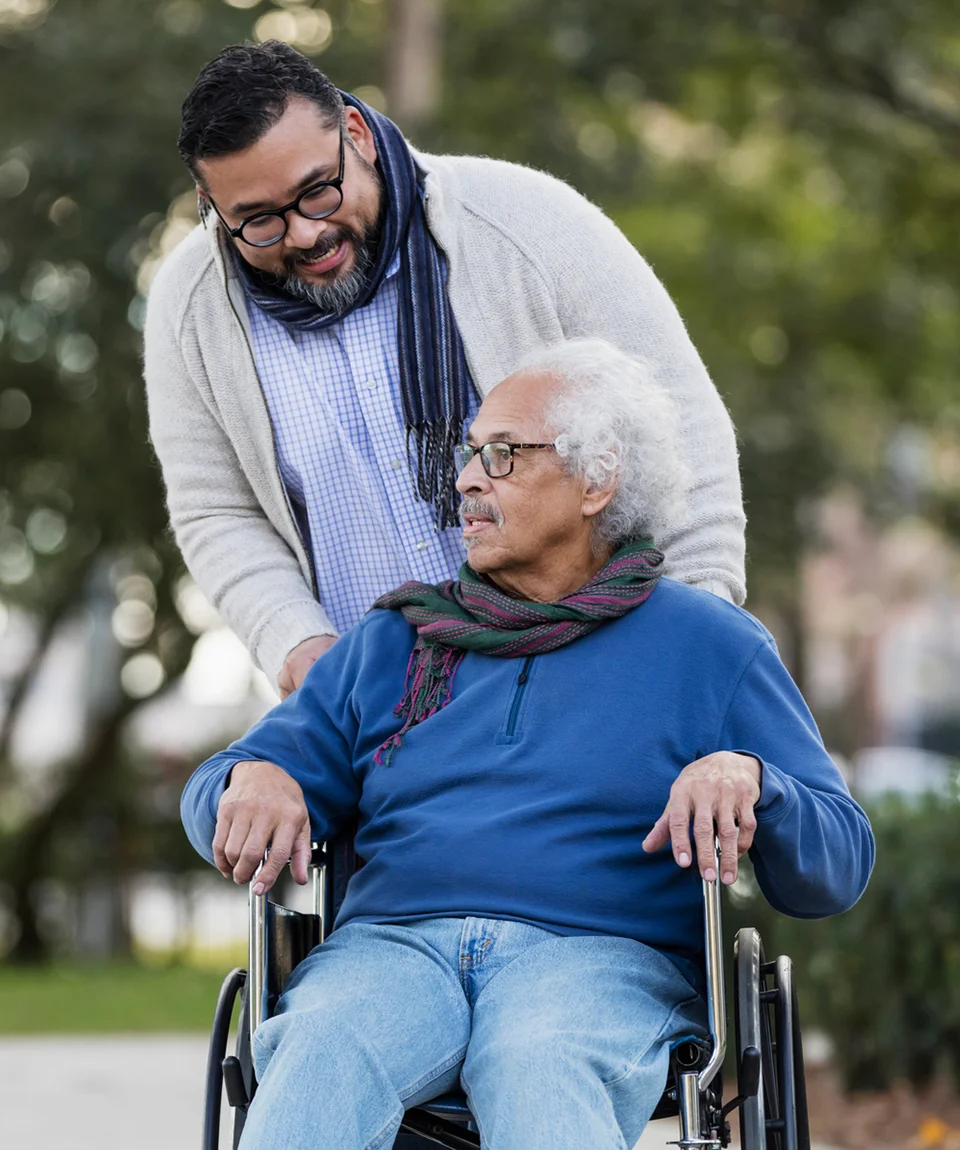Being intimate with someone you care about can be an important part of a relationship. The effects of stroke can affect intimacy with your partner. Here are some possible problems:
- The stroke may have damaged the part of your brain that controls your sex drive.
- You may feel emotionally overwhelmed and find it hard to focus on intimacy.
- Fatigue and depression may affect your desire and sex drive.
- You may fear that you will have another stroke during sex.
- You may have lost feeling on one side of your body.
- You may have trouble communicating with your partner.
- Men may have trouble getting an erection or ejaculating.
- Women may have less feeling in the vagina and more dryness.
Tips to help with intimacy
Timing
There is no defined time for resuming sexual relationships. It is up to you to know when you are ready.
You may want to start slowly with other ways to show intimacy and gradually work up to sexual intercourse.


Set the scene
Talk with your partner about the best times for getting together. Choose times when you are both rested and will have no interruptions. Set aside plenty of time. That way, if your sexual responses are slow, you are less likely to feel frustrated.
Relax together before you begin. Have a massage, listen to music or soak in a bath.
Before sex
- Do not drink large amounts of liquid for two hours before sex.
- Empty your bladder.
- Avoid alcohol.
Try new things
If your stroke has caused loss of movement or feeling, experiment with new ways of having sex that make it as easy and comfortable as possible.
Use a lubricating jelly that is water-based to help with vaginal dryness. Avoid lubricants such as oils or petroleum jelly because they do not dissolve in water and can lead to infection in your vagina.
You and your partner may enjoy sharing sexy books or movies. Talk with your partner to see if this would be helpful.
There are many ways to show love and affection. Hugs, kisses, touch and massage are just a few. Take time to talk to your partner to discover different ways to please each other.
During intimacy, focus on the feelings on the side of your body not affected by your stroke.
Medication and your sex drive
After a stroke, your doctor may prescribe pills to lower blood pressure or antidepressants. These medications can affect your urge or ability to have sex. Never stop taking your medication without consulting your doctor first.
Talk to your doctor about how the medication is affecting you.
You may hear about herbal remedies that claim to boost your sex drive or sexual function. Natural and herbal products can interact with medication you are taking. Talk to your doctor or pharmacist first.
Where to get support
Your family doctor, social worker, nurse or counsellor may be able to help if you have questions about intimacy or need to talk about it. They may recommend a therapist who specializes in sexual issues.
